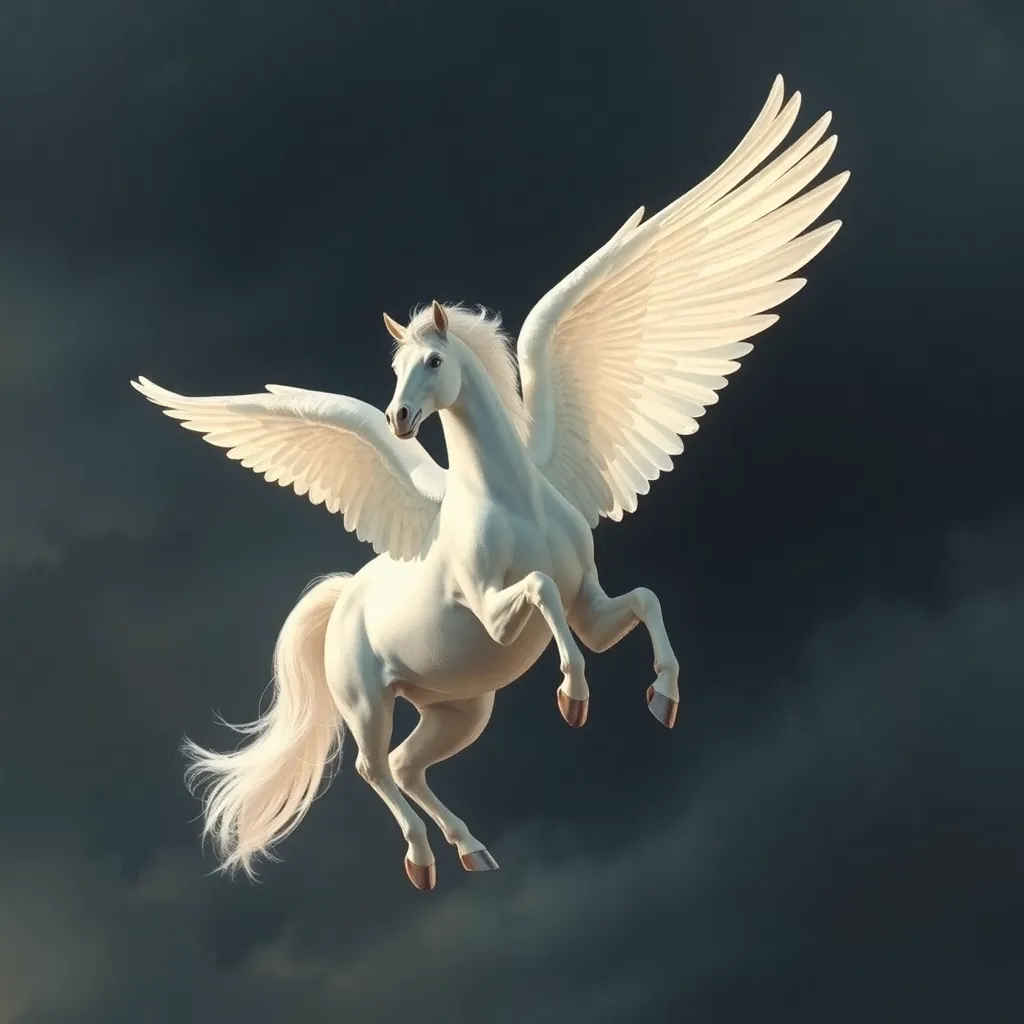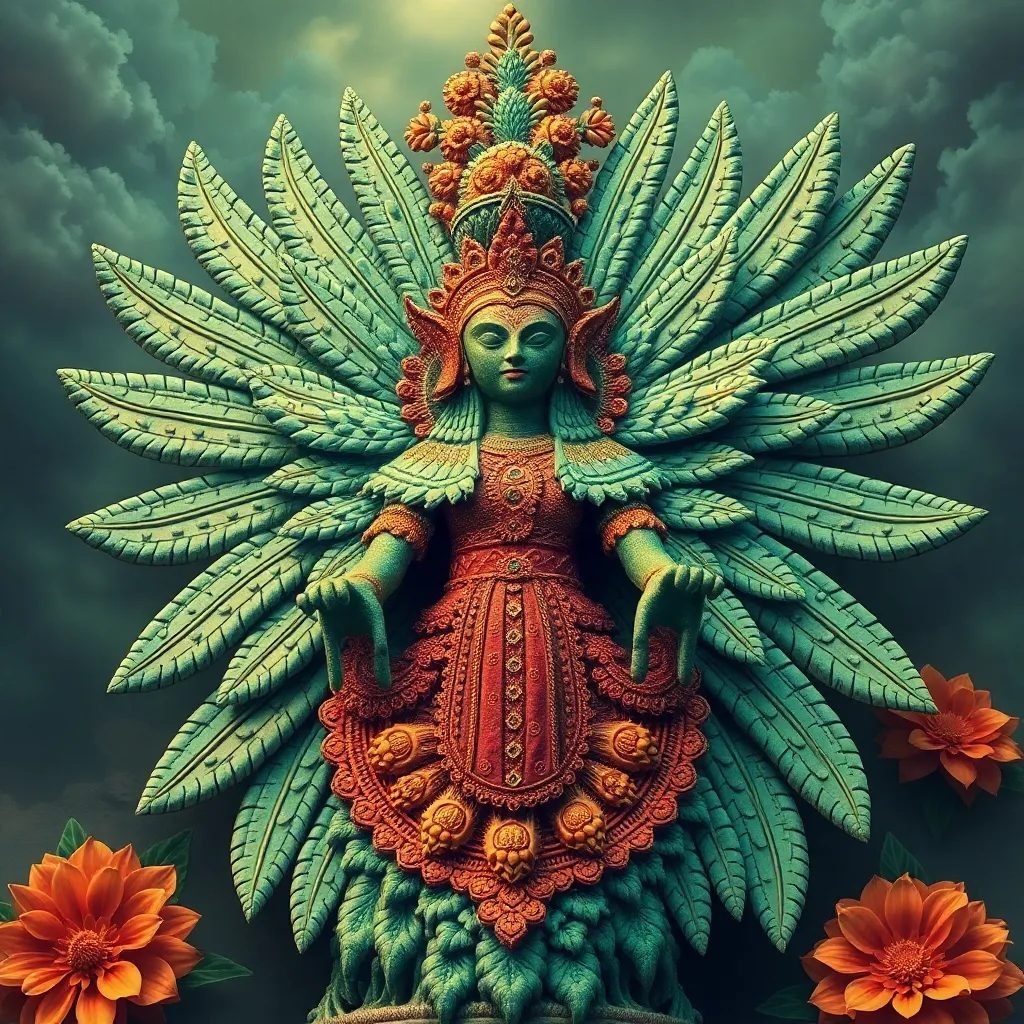Pegasus: A Symbol of the Power of the Human Imagination
I. Introduction
Pegasus, the winged horse of Greek mythology, has captivated the human imagination for centuries. This majestic creature is not merely a fantastical beast but a powerful symbol representing the heights of human aspiration and creativity. The importance of imagination in human culture cannot be overstated, as it has driven innovation, art, and the pursuit of dreams throughout history. This article explores Pegasus as a symbol of the power of imagination, examining its origins, representations in art, and its relevance in contemporary society.
II. The Origins of Pegasus in Greek Mythology
The story of Pegasus begins with his extraordinary birth. According to mythology, he sprang from the blood of Medusa when she was slain by the hero Perseus. This lineage highlights the connection between beauty and terror, symbolizing the dual nature of creativity. Pegasus is often associated with the hero Bellerophon, who tamed him and rode him into battle against the Chimera, a monstrous fire-breathing creature.
- Birth and lineage of Pegasus: Born from the Gorgon Medusa’s blood.
- Role in the myth of Bellerophon: Tamed by Bellerophon to defeat the Chimera.
- Symbolic significance: Represents the struggle between good and evil, and the triumph of the human spirit.
III. Pegasus as a Representation of Human Aspiration
Pegasus embodies the concept of flight and freedom, evoking feelings of transcendence and limitless potential. The image of a winged horse soaring through the skies resonates with the human desire to rise above earthly limitations and pursue our dreams. Throughout history, many figures have drawn inspiration from the myth of Pegasus, using it as a metaphor for their own journeys toward success and fulfillment.
- Flight and freedom: Pegasus symbolizes the aspiration to break free from constraints.
- Dreams and ambitions: Represents the pursuit of one’s loftiest goals.
- Historical figures: Artists, thinkers, and leaders have referenced Pegasus in their quests for greatness.
IV. Artistic Interpretations of Pegasus Through the Ages
Pegasus has been a muse for countless artists throughout history, inspiring a wide array of representations in art and literature. From ancient pottery to Renaissance paintings, Pegasus’s image has evolved while retaining its core symbolism.
- Ancient art and sculpture: Depictions of Pegasus can be found in Greek vases and sculptures, illustrating his mythological significance.
- Renaissance and Romantic representations: Artists like Botticelli and Delacroix depicted Pegasus in ways that highlighted beauty, heroism, and the sublime.
- Modern adaptations: Pegasus continues to appear in contemporary literature, films, and video games, reflecting ongoing fascination.
V. The Psychological Impact of Mythical Creatures
Mythology plays a crucial role in shaping human psychology and cultural narratives. Pegasus, as an archetype, represents creativity and the boundless nature of imagination. The psychological impact of such mythical figures is profound, influencing both personal identities and collective societal narratives.
- Role of mythology: Myths help explain human experiences, providing a framework for understanding the world.
- Pegasus as an archetype: Represents the ideal of artistic inspiration and the potential for greatness.
- Influence on narratives: Myths shape how individuals and cultures perceive aspirations and achievements.
VI. Pegasus in Popular Culture Today
Today, Pegasus remains a popular figure in various forms of media. His image is ubiquitous in films, literature, and even video games, serving as a reminder of the enduring power of myth.
- Representation in films, books, and video games: Pegasus appears in works like “Percy Jackson” and animated films, captivating new generations.
- Branding icon: Companies utilize Pegasus as a symbol of speed and innovation, recognizing its cultural significance.
- Ongoing relevance: Pegasus continues to inspire creativity and imagination in contemporary society.
VII. The Connection Between Imagination and Innovation
Myths like that of Pegasus inspire technological and artistic advancements, showing how imagination fuels progress. The ability to envision the impossible is a driving force behind innovation and problem-solving.
- Inspiration for advancements: Many technological breakthroughs have roots in imaginative concepts derived from mythology.
- Role of imagination: Creative thinking leads to novel solutions and artistic masterpieces.
- Pegasus as a metaphor: Represents the spirit of innovation and the courage to pursue new frontiers.
VIII. Conclusion
In conclusion, Pegasus stands as a powerful symbol of imagination and human aspiration. From his mythical origins to his pervasive presence in contemporary culture, he embodies the heights of creativity and the pursuit of dreams. The legacy of mythical figures like Pegasus continues to inspire individuals and societies, reminding us of the importance of nurturing our imagination in the modern world. By embracing the spirit of Pegasus, we can aspire to reach new heights and innovate for a brighter future.




